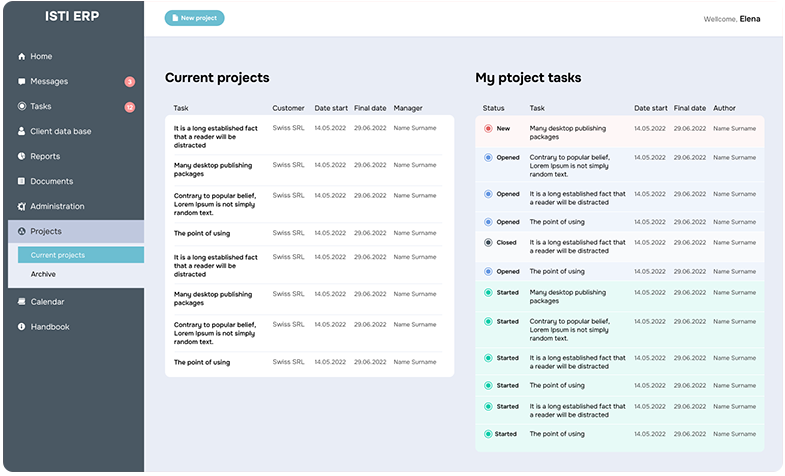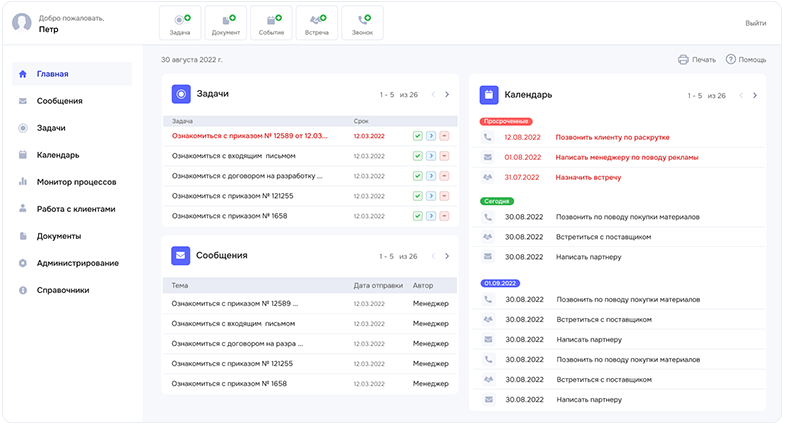As your business grows, so do the number of employees, clients, and sales, making it increasingly challenging to manage processes effectively. An ERP system (Enterprise Resource Planning) is an integrated software solution designed to optimize business operations and manage resources more efficiently. By implementing an ERP online system, tasks can be assigned across departments and employees, reducing the risk of errors and delays that could impact customer loyalty and company revenue.
ERP CRM offers advanced capabilities for tracking client interactions, supporting better customer engagement and satisfaction. Integrating online ERP software into your business provides a coordinated system to streamline operations and reduce repetitive administrative tasks, freeing up time for strategic activities.
A modern ERP online system automates core processes, including sales, human resources, accounting, inventory, and electronic documentation. When processes become challenging to monitor, and the data load grows, implementing a customized ERP system is essential to meet specific company requirements and maximize profitability.
An ERP system is designed to facilitate the control and management of company resources. Key characteristics of an ERP system include:

Integrating an ERP information system provides numerous advantages, including:

An ERP system can include various modules tailored to business-specific needs, such as ERP for inventory management, ERP for accounting, ERP CRM for customer relations, or ERP for human resource management. At Studio Webmaster, each ERP system project begins with a thorough analysis of client processes and requirements to ensure the most suitable modules are implemented. Each custom ERP system we develop is aligned with the specific needs of your company to enhance efficiency and profitability.
Our team of online ERP software experts is ready to provide the latest solutions for business automation, no matter the size or industry. By choosing Studio Webmaster, you can rely on a professional ERP system implementation, fully tailored to your company's structure and goals.
The specification of companies ' work involves the development and implementation of various erp system modules. Studio Webmaster specialists carefully prescribe all developed modules and describe all business processes at the stage of drawing up the technical task.
The company Studio Webmaster develops the following modules of erp systems:

CRM

Procurement management

Inventory management

Material planning

Warehouse

Personnel management

Business Analytics

Financial statement
Leaders in the IT market |
| 14+ years of experience and innovative solutions to help your business stand out and grow. |
Inspiring portfolio |
| 150+ successful projects: from sleek landing pages to complex corporate systems. |
Team of experts |
| 51+ professionals who bring your ideas to life with maximum efficiency. |

| NOTORIUM TRADEMARK AWARDS |
| Notorium Trophy 2017, Notorium Gold Medal 2018, Notorium Gold Medal 2019 |

| TRADE MARK OF THE YEAR |
| Gold Medal 2016, Gold Medal 2017, Gold Medal 2018, Gold Medal 2019 |

| THE BEST EMPLOYER OF THE YEAR |
| According to the annual Survey conducted by AXA Management Consulting - 2017, 2018, 2019 |